Blog
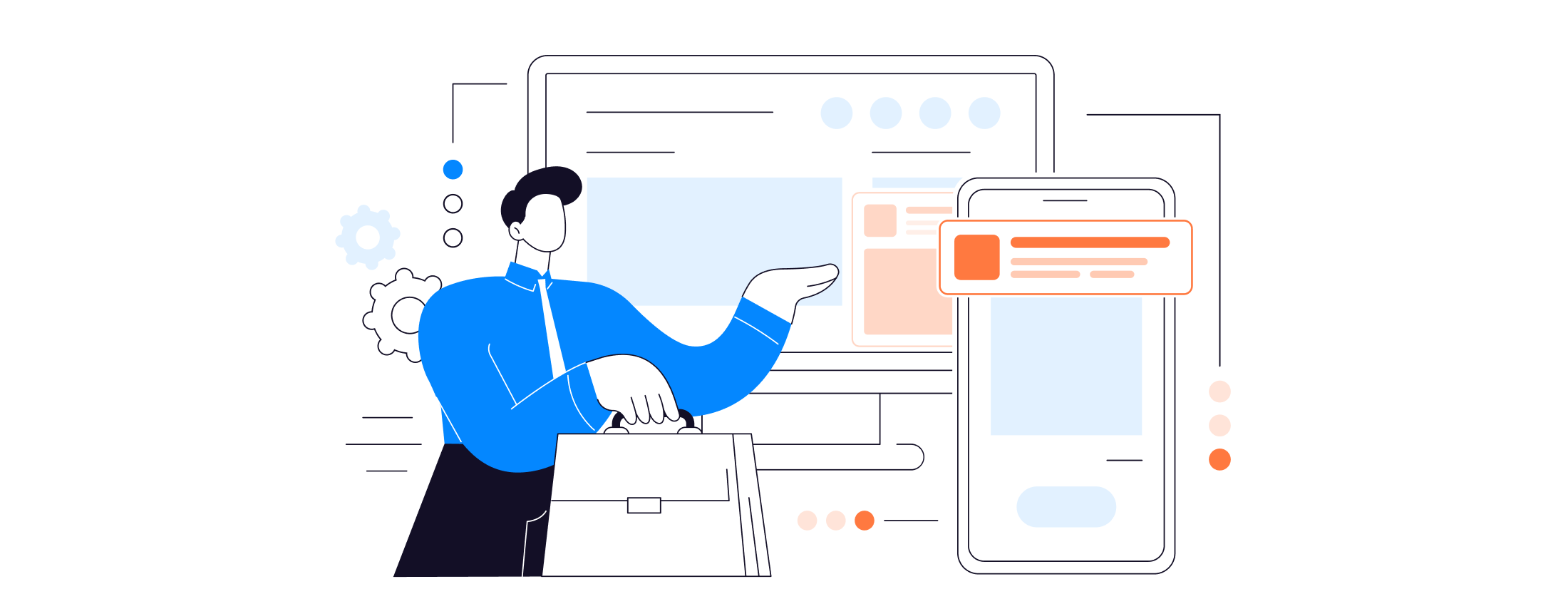
The domain of affiliate marketing has gleefully welcomed push traffic, employing it as an effective tool for engaging a specific audience. It’s undoubtedly beneficial to understand how to manage the audience you target with push ads. This article provides a detailed understanding of push traffic, its advantages, and the best ways to utilize it, empowering marketers to optimize their advertising efforts.
At the core of push traffic are push notifications. These concise messages are sent directly to a user’s mobile device, even if they’re not actively using a website or app. Unlike other traffic sources, such as search or social media, push traffic enables marketers to engage with users and guide them back to their sites or target pages.
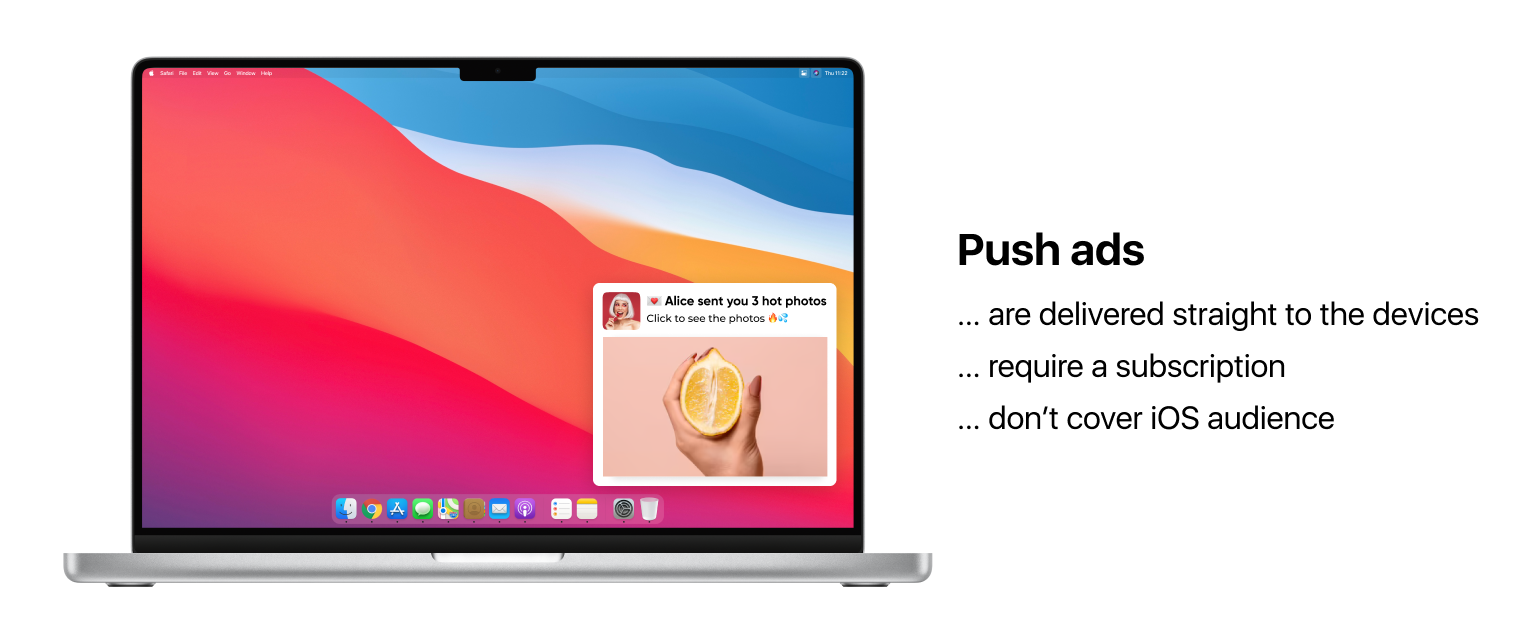
Built on a subscription model, push notifications ensure that the recipients have agreed to receive these messages voluntarily. This opt-in model allows advertisers to reach an audience with a demonstrated interest in their content or services. Accumulating push notification subscribers involves a straightforward process, with publishers simply needing to integrate a code onto their websites.
Let’s sequentially discuss how this format functions from the user’s perspective.
When users opt-in for push ads, they are requested to sign up for the service. Once permission is granted, these users become subscribers.
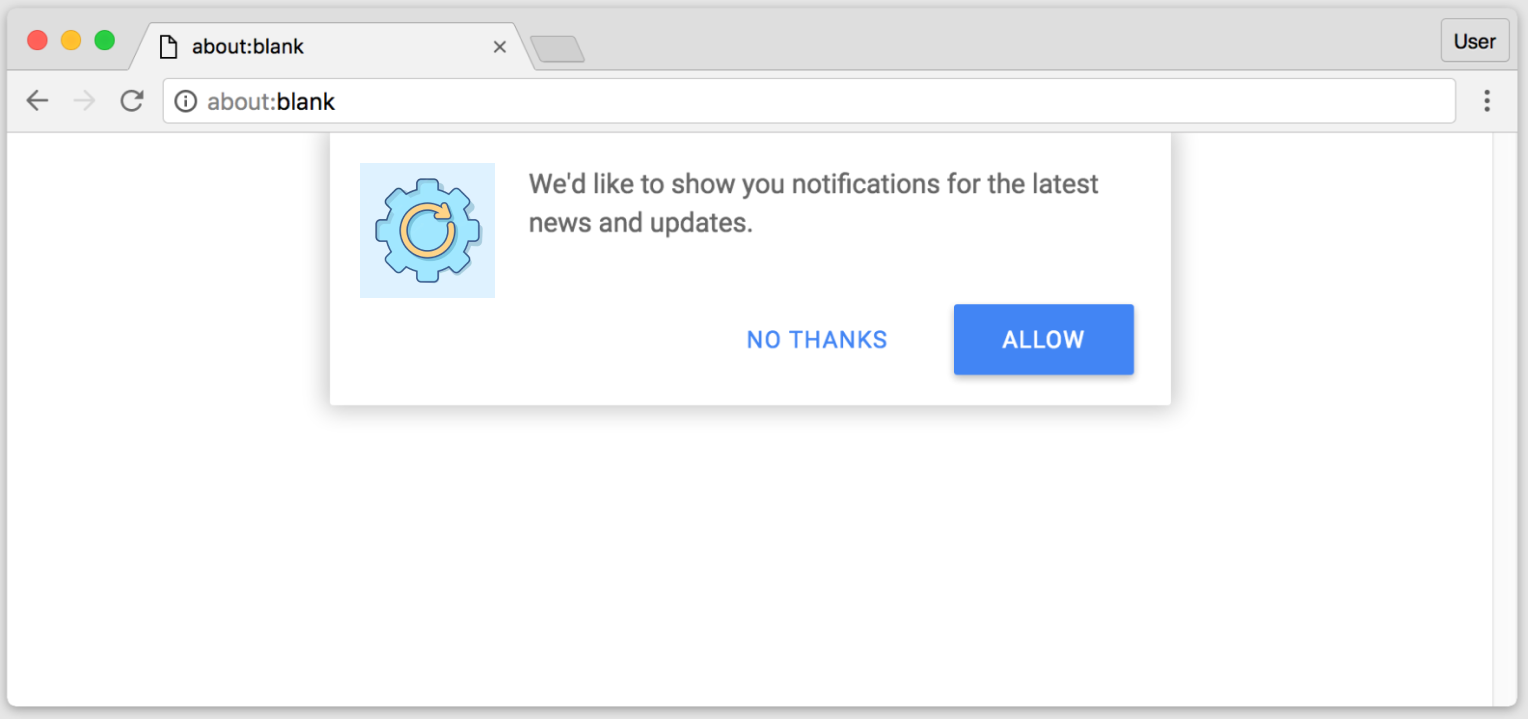
Push ad notifications, short messages from websites, are delivered to the devices of subscribers.
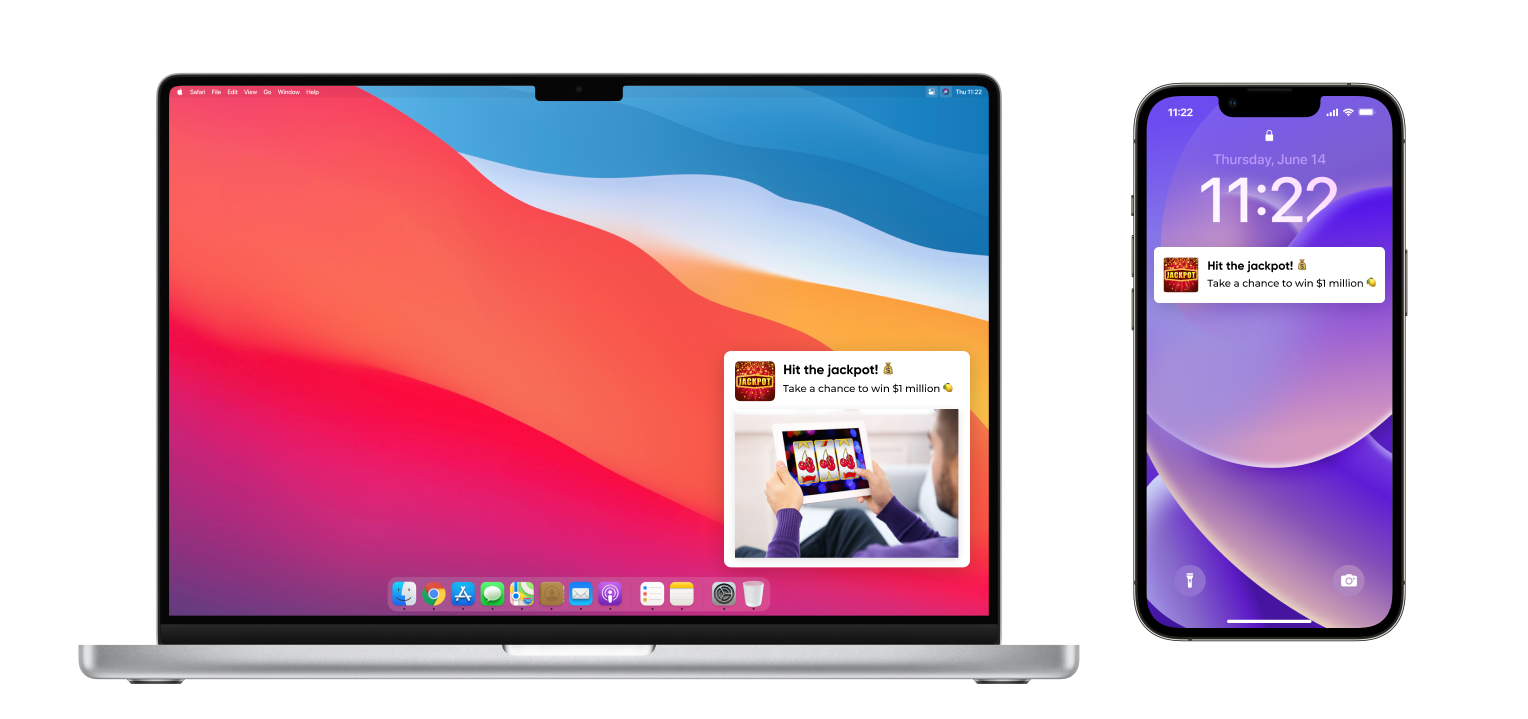
A standard push ad consists of an icon, image, title, and description. The display format of push ads varies between computers and mobile devices. Mobiles often only display the icon, title, and description due to limited screen space, with the primary image typically not shown. Thus, essential information is presented in a condensed format for mobile users.
Users are directed to target pages in response to push notifications.
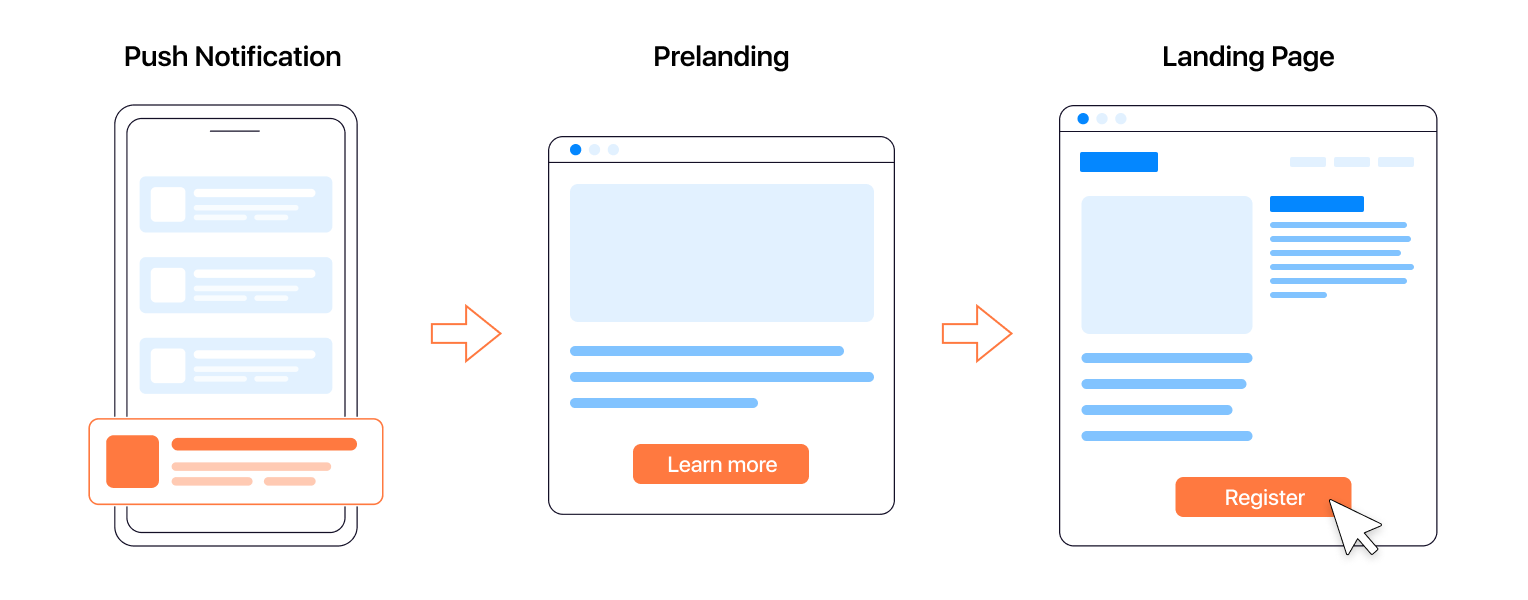
Advertisers can choose targeting options, primarily device characteristics, segment traffic based on subscription recency and ad performance, and schedule notifications according to demographic factors or offer specifics.
For those who find the subscription model not quite fitting, in-page push traffic may be a viable alternative.
To leverage the potential of push ads, businesses can use various push ads traffic platforms or ad networks. Acting as intermediaries between advertisers and publishers (webmasters), these ad networks streamline the distribution of push notifications.
Utilizing advertising networks to exploit push traffic offers several advantages:
Next, let’s explore some popular ad networks that provide cheap push traffic.
| Ad Networks | Ad Impressions | Minimal deposit | Cost models | Minimal CPC | Ad Formats | Visit ad network |
|---|---|---|---|---|---|---|
| 5 billion+ | $100 | CPC, CPM | $0.003 | Push Ads In-page Calendar push Popunders Direct click | Website | |
| 1 billion impressions | $50 | CPC | CPC | Push ads In-page push ads Domain redirect | Website | |
 | 14 billion impressions monthly | $50 | CPC | $0.001 | Push Ads In-Page Push | Website |
 | 1 billion | $100 | CPC | $0.001 | Push Ads In-page | Website |
 | 1 billion | $100 | CPM, CPC, dCPM, CPMv, CPA | $0.001 | Banners Native Ads Video Push ads In-Page Push Full-Page Interstitial Popunders Targeted clicks | Website |
| 2 billion+ | $100 | CPC, CPM | $0.001 | Native Push Ads In-page Popunder | Website | |
| 9 billion daily | $100 | CPM, CPC, CPA target | $0.01 | Native Push Notification In-Page Push Popunder Interstitial Banners | Website | |
| 3 billion | $100 | CPC | $0.005 | Push Ads In-Page Push Popunder | Website | |
| 5 billion+ monthly | $100 | CPC, CPM | Push ads In-page Push Popunder Native Banner Video | Website | ||
| 4,5 billion daily | $50 | CPC, CPM, Smart CPM, CPA | $0.001 | Push ads Popunder Native Interstitials Gallery Direct Links | Website | |
| 2 billion+ | $25 | CPC | $0.01 | Push ads In-page Push Banners Popunders Native | Website |
An analysis of the features, targeting options, and audience reach of the best push traffic sources can assist businesses in selecting the most appropriate platform for their needs.
If you don’t want to waste time going through each ad network on your own, read about them in the article about top ad networks with cheap push traffic.
Moreover, we’ve curated some discounts from ad networks. Grab them right now!
If you’re still unsure about handling push traffic, consider these benefits:
CPC and CPM are the primary models for buying traffic.
These models provide different benefits and are chosen based on campaign objectives, target audience, and budget.
Push traffic is frequently purchased on a cost-per-click (CPC) model, with prices starting as low as $0.003 per click. The cost per click can fluctuate based on the GEO. Cheap push notifications traffic typically originates from tier-3 countries like India, Indonesia, Pakistan, and Sri Lanka.
From crafting creative assets to assessing performance, consider these best practices.
Creating personalized, appealing push notifications is key to capturing user attention. Tailor messages to align with their interests, requirements, or past interactions. Also, contemplate notification frequency and timing to avoid overwhelming users and maintaining their subscription. Balancing informativeness and non-intrusiveness is crucial.
Find a collection of effective push notification examples and templates specifically designed for affiliate marketers in 2024! This article includes over 25 top-tier push notification samples.
Segmenting audiences is essential in maximizing the efficacy of push ad campaigns. By segmenting subscribers based on geographical locations, device parameters, and user freshness, businesses can deliver highly customized and relevant notifications. Conducting A/B tests across different segments and analyzing the results can optimize targeting and increase conversion rates.
When setting up your campaign, consider a parameter known as “subscription age” or like that. Segmenting users according to their subscription duration can help target highly engaged and converting traffic.
Here’s how ad networks usually categorize subscription age: fresh, average, and old.
These are users who have recently subscribed, typically within the last 1-7 days, or at most, 14 days.
These are users who have been subscribed for a moderate period, generally between 15-90 days, or up to 3 months.
These are users who have been subscribed for a longer period, usually beyond 90 days, or the 3-month threshold.
Monitoring crucial metrics such as click-through rates, clicks, and conversion rates is essential to evaluate the success of push ad campaigns. Ad platforms offer extensive tracking and analysis capabilities to effectively measure the performance of push traffic campaigns. Furthermore, diligent attention to metrics allows advertisers to identify trends, refine targeting strategies, and make data-driven decisions for continuous improvement
Implementing split tests on push notifications enables businesses to identify the most effective strategies to buy traffic.
Here are some optimization strategies for push campaigns:
Understanding the nature of push traffic and analyzing results for data-driven improvements empower businesses to optimize their push traffic campaigns, unlocking the potential of this robust marketing channel.
Push traffic offers a dynamic opportunity for businesses to effectively reach and engage their target audience. By understanding this concept, exploiting the benefits, implementing best practices, and tracking campaign statistics, businesses can drive the best possible push traffic.
The domain of affiliate marketing has gleefully welcomed push traffic, employing it as an effective tool for engaging a specific audience. It’s undoubtedly beneficial to understand how to manage the audience you target with push ads. This article provides a detailed understanding of push traffic, its advantages, and the best ways to utilize it, empowering marketers to optimize their advertising efforts.
At the core of push traffic are push notifications. These concise messages are sent directly to a user’s mobile device, even if they’re not actively using a website or app. Unlike other traffic sources, such as search or social media, push traffic enables marketers to engage with users and guide them back to their sites or target pages.

Built on a subscription model, push notifications ensure that the recipients have agreed to receive these messages voluntarily. This opt-in model allows advertisers to reach an audience with a demonstrated interest in their content or services. Accumulating push notification subscribers involves a straightforward process, with publishers simply needing to integrate a code onto their websites.
Let’s sequentially discuss how this format functions from the user’s perspective.
When users opt-in for push ads, they are requested to sign up for the service. Once permission is granted, these users become subscribers.

Push ad notifications, short messages from websites, are delivered to the devices of subscribers.

A standard push ad consists of an icon, image, title, and description. The display format of push ads varies between computers and mobile devices. Mobiles often only display the icon, title, and description due to limited screen space, with the primary image typically not shown. Thus, essential information is presented in a condensed format for mobile users.
Users are directed to target pages in response to push notifications.

Advertisers can choose targeting options, primarily device characteristics, segment traffic based on subscription recency and ad performance, and schedule notifications according to demographic factors or offer specifics.
For those who find the subscription model not quite fitting, in-page push traffic may be a viable alternative.
To leverage the potential of push ads, businesses can use various push ads traffic platforms or ad networks. Acting as intermediaries between advertisers and publishers (webmasters), these ad networks streamline the distribution of push notifications.
Utilizing advertising networks to exploit push traffic offers several advantages:
Next, let’s explore some popular ad networks that provide cheap push traffic.
| Ad Networks | Ad Impressions | Minimal deposit | Cost models | Minimal CPC | Ad Formats | Visit ad network |
|---|---|---|---|---|---|---|
| 5 billion+ | $100 | CPC, CPM | $0.003 | Push Ads In-page Calendar push Popunders Direct click | Website | |
| 1 billion impressions | $50 | CPC | CPC | Push ads In-page push ads Domain redirect | Website | |
 | 14 billion impressions monthly | $50 | CPC | $0.001 | Push Ads In-Page Push | Website |
 | 1 billion | $100 | CPC | $0.001 | Push Ads In-page | Website |
 | 1 billion | $100 | CPM, CPC, dCPM, CPMv, CPA | $0.001 | Banners Native Ads Video Push ads In-Page Push Full-Page Interstitial Popunders Targeted clicks | Website |
| 2 billion+ | $100 | CPC, CPM | $0.001 | Native Push Ads In-page Popunder | Website | |
| 9 billion daily | $100 | CPM, CPC, CPA target | $0.01 | Native Push Notification In-Page Push Popunder Interstitial Banners | Website | |
| 3 billion | $100 | CPC | $0.005 | Push Ads In-Page Push Popunder | Website | |
| 5 billion+ monthly | $100 | CPC, CPM | Push ads In-page Push Popunder Native Banner Video | Website | ||
| 4,5 billion daily | $50 | CPC, CPM, Smart CPM, CPA | $0.001 | Push ads Popunder Native Interstitials Gallery Direct Links | Website | |
| 2 billion+ | $25 | CPC | $0.01 | Push ads In-page Push Banners Popunders Native | Website |
An analysis of the features, targeting options, and audience reach of the best push traffic sources can assist businesses in selecting the most appropriate platform for their needs.
If you don’t want to waste time going through each ad network on your own, read about them in the article about top ad networks with cheap push traffic.
Moreover, we’ve curated some discounts from ad networks. Grab them right now!
If you’re still unsure about handling push traffic, consider these benefits:
CPC and CPM are the primary models for buying traffic.
These models provide different benefits and are chosen based on campaign objectives, target audience, and budget.
Push traffic is frequently purchased on a cost-per-click (CPC) model, with prices starting as low as $0.003 per click. The cost per click can fluctuate based on the GEO. Cheap push notifications traffic typically originates from tier-3 countries like India, Indonesia, Pakistan, and Sri Lanka.
From crafting creative assets to assessing performance, consider these best practices.
Creating personalized, appealing push notifications is key to capturing user attention. Tailor messages to align with their interests, requirements, or past interactions. Also, contemplate notification frequency and timing to avoid overwhelming users and maintaining their subscription. Balancing informativeness and non-intrusiveness is crucial.
Find a collection of effective push notification examples and templates specifically designed for affiliate marketers in 2024! This article includes over 25 top-tier push notification samples.
Segmenting audiences is essential in maximizing the efficacy of push ad campaigns. By segmenting subscribers based on geographical locations, device parameters, and user freshness, businesses can deliver highly customized and relevant notifications. Conducting A/B tests across different segments and analyzing the results can optimize targeting and increase conversion rates.
When setting up your campaign, consider a parameter known as “subscription age” or like that. Segmenting users according to their subscription duration can help target highly engaged and converting traffic.
Here’s how ad networks usually categorize subscription age: fresh, average, and old.
These are users who have recently subscribed, typically within the last 1-7 days, or at most, 14 days.
These are users who have been subscribed for a moderate period, generally between 15-90 days, or up to 3 months.
These are users who have been subscribed for a longer period, usually beyond 90 days, or the 3-month threshold.
Monitoring crucial metrics such as click-through rates, clicks, and conversion rates is essential to evaluate the success of push ad campaigns. Ad platforms offer extensive tracking and analysis capabilities to effectively measure the performance of push traffic campaigns. Furthermore, diligent attention to metrics allows advertisers to identify trends, refine targeting strategies, and make data-driven decisions for continuous improvement
Implementing split tests on push notifications enables businesses to identify the most effective strategies to buy traffic.
Here are some optimization strategies for push campaigns:
Understanding the nature of push traffic and analyzing results for data-driven improvements empower businesses to optimize their push traffic campaigns, unlocking the potential of this robust marketing channel.
Push traffic offers a dynamic opportunity for businesses to effectively reach and engage their target audience. By understanding this concept, exploiting the benefits, implementing best practices, and tracking campaign statistics, businesses can drive the best possible push traffic.
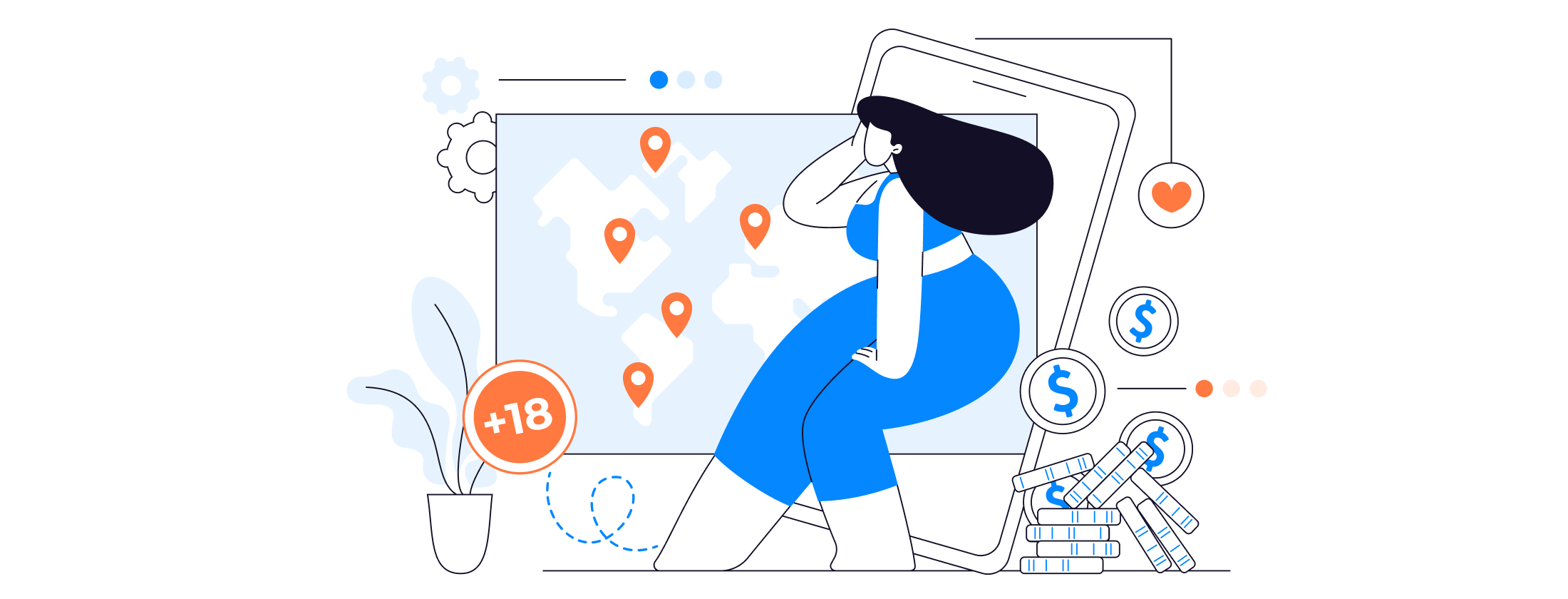
Blog
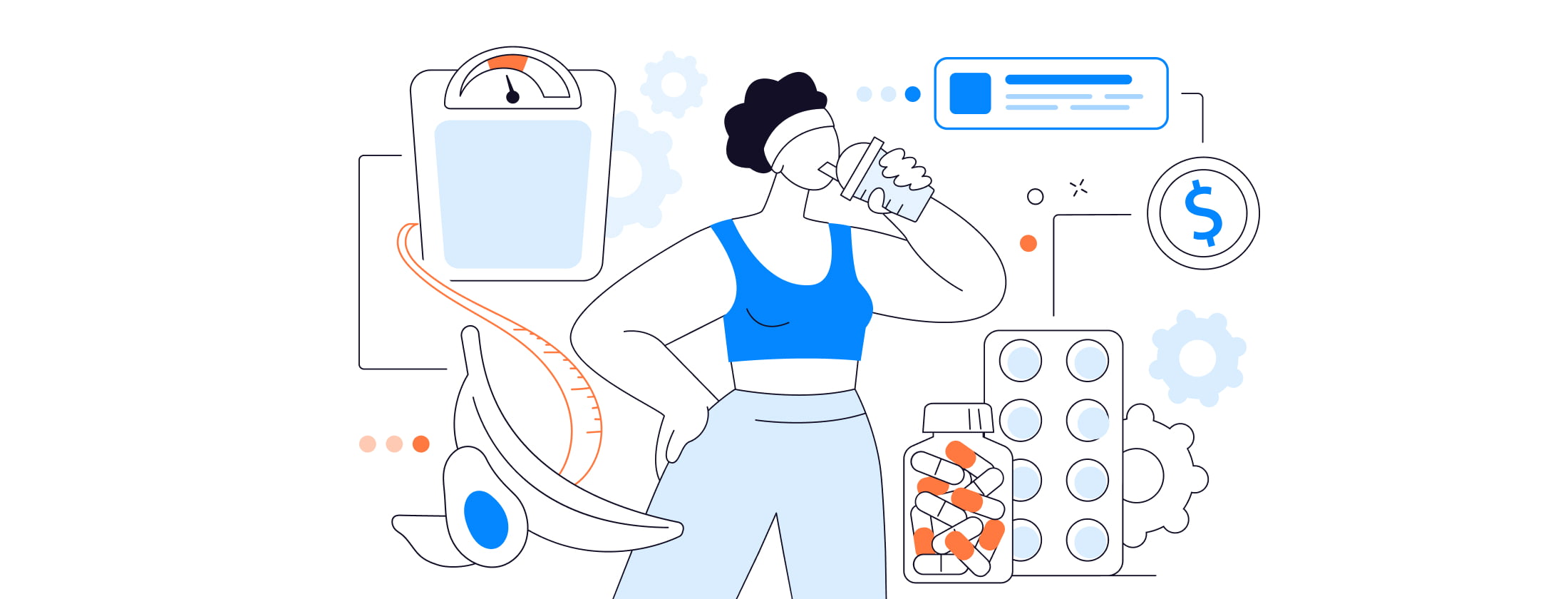
Blog